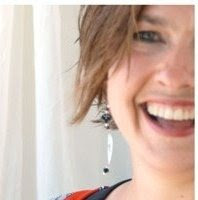Writing Ourselves Whole - early 2010 schedule!
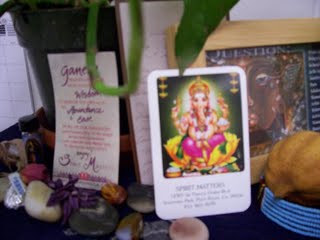
Happy 2010, all!
Here's a short list of what's coming for me/writing ourselves whole for the first part of the year -- starting next week!
Send me a note for more info (jennifer@writingourselveswhole.org)! (I, on the other hand, commence the deep breathing. :)
xox!
Jen
~~~~~~~~~~~~~~~~~~~~~~~~~~~~~~~
Begins next Monday! Winter 2010: Write Whole: Survivors Write. Open to all women survivors of sexual trauma. (8 Monday evenings beginning 1/11) $225-300, sliding scale
Winter 2010: Healing Through Writing: a workshop for folks living with cancer. Through the UCSF Mt. Zion Art for Recovery program. (7 Thursday mornings, begins 1/21) Contact Cindy Perlis for more info:Cynthia.Perlis@ucsfmedctr.org
Jan 30, 2010 (1-4pm): Declaring Our Erotic: a queer women's erotic writing workshop (In honor of the Body Heat Femme Porn Tour!), at the writing ourselves whole workshop space, $20
Jan 29-30, 2010 8pm, $10-15: Body Heat at the Center for Sex and Culture! Join us for one of these SNEAK PEEK pre-Tour shows! Jan 29: Carol Queen / Kathleen Delaney / Jen Cross / Madison Young /Vixen Noir aka Veronica Combs / Amelia Mae Paradise from Diamond Daggers; Jan 30: Shar Rednour / Daphne Gottlieb / Kathleen Delaney / Jen Cross / Alex Cafarelli / Lady Fantastique)
Feb 2010: Declaring Our Erotic: a writing workshop for ALL queer survivors of sexual trauma (4 Tuesday evenings, beginning 2/2, at Modern Times Bookstore. $50-100, sliding scale)
Feb 10, 5:30-6:30: Quick-n-Dirty Erotic Writing happy hour at Good Vibes, Polk St! Free! http://events.goodvibes.com
Feb 13, 12:00-4:00pm: Write Whole with Survivorship. Survivorship is an amazing and community-led org for folks who are survivors of ritual or cult abuse. Free!
March 10-27: Body Heat: Femme Porn Tour. The cross-country extravaganza! In this our fourth installment, Kathleen Delaney (Atlanta, GA.), Diana Cage (NYC), Meliza Bañales (San Francisco, CA), Jen Cross (San Francisco, CA), Nicky Click (Durham, NH),Gigi Frost (Boston, MA), Sossity Chiricuzio (Portland, OR.), Alex Cafarelli (San Francisco, CA.), and Al Schlong (Atlanta, GA) are prepared to rock off all your socks. We begin in Boston and our finale is scheduled for Vancouver! (Visit my website or myspace.com/femmeporntour FMI!
Spring 2010: Write Whole: Survivors Write - for women survivors of sexual trauma (8 Monday evenings beginning 4/5) $225-300, sliding scale
Spring 2010: Declaring Our Erotic: an erotic writing workshop open to everyone! (8 Tuesday evenings beginning 4/6) $225-300, sliding scale
Spring 2010: Healing Through Writing: a workshop for folks living with cancer. Through the UCSF Mt. Zion Art for Recovery program. (8 Thursday mornings, begins in April, date not yet confirmed) Contact Cindy Perlis for more info:Cynthia.Perlis@ucsfmedctr.org
~~~~~~~~~~~~~~~~~~~~~~~~~~~~~~~
Want more info? Check out www.writingourselveswhole.org!
Labels: AWA, bay area, Body Heat, san francisco, sexual trauma, sexuality, writing ourselves whole, writing workshops
 (from some visioning for 2010: I'd like to post more consistently here at the writingourselveswhole blog, and one topic I want to communicate about is this process I'm entering around growing the workshops into something more like a nonprofit. I never saw myself as someone who would start an org, and have a lot of 'inner critic' stuff coming up about these new steps. I want to be transparent with these voices, with my response to 'em, and more...)
(from some visioning for 2010: I'd like to post more consistently here at the writingourselveswhole blog, and one topic I want to communicate about is this process I'm entering around growing the workshops into something more like a nonprofit. I never saw myself as someone who would start an org, and have a lot of 'inner critic' stuff coming up about these new steps. I want to be transparent with these voices, with my response to 'em, and more...)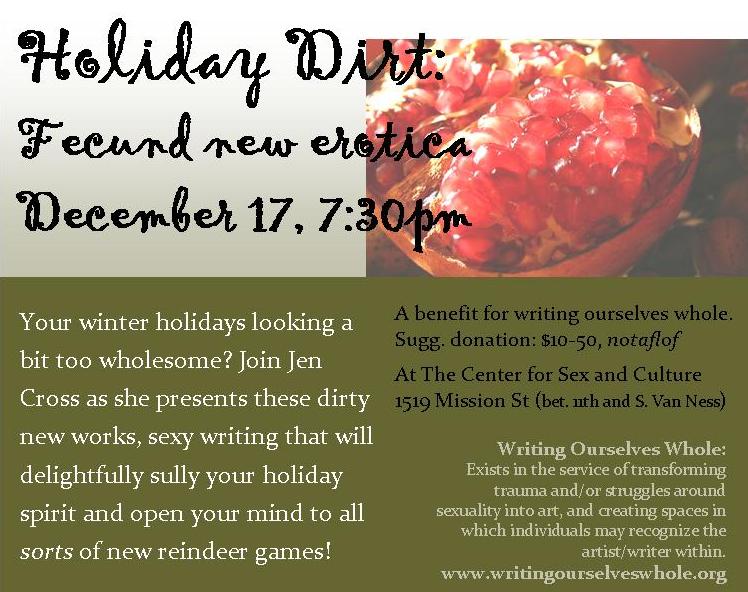
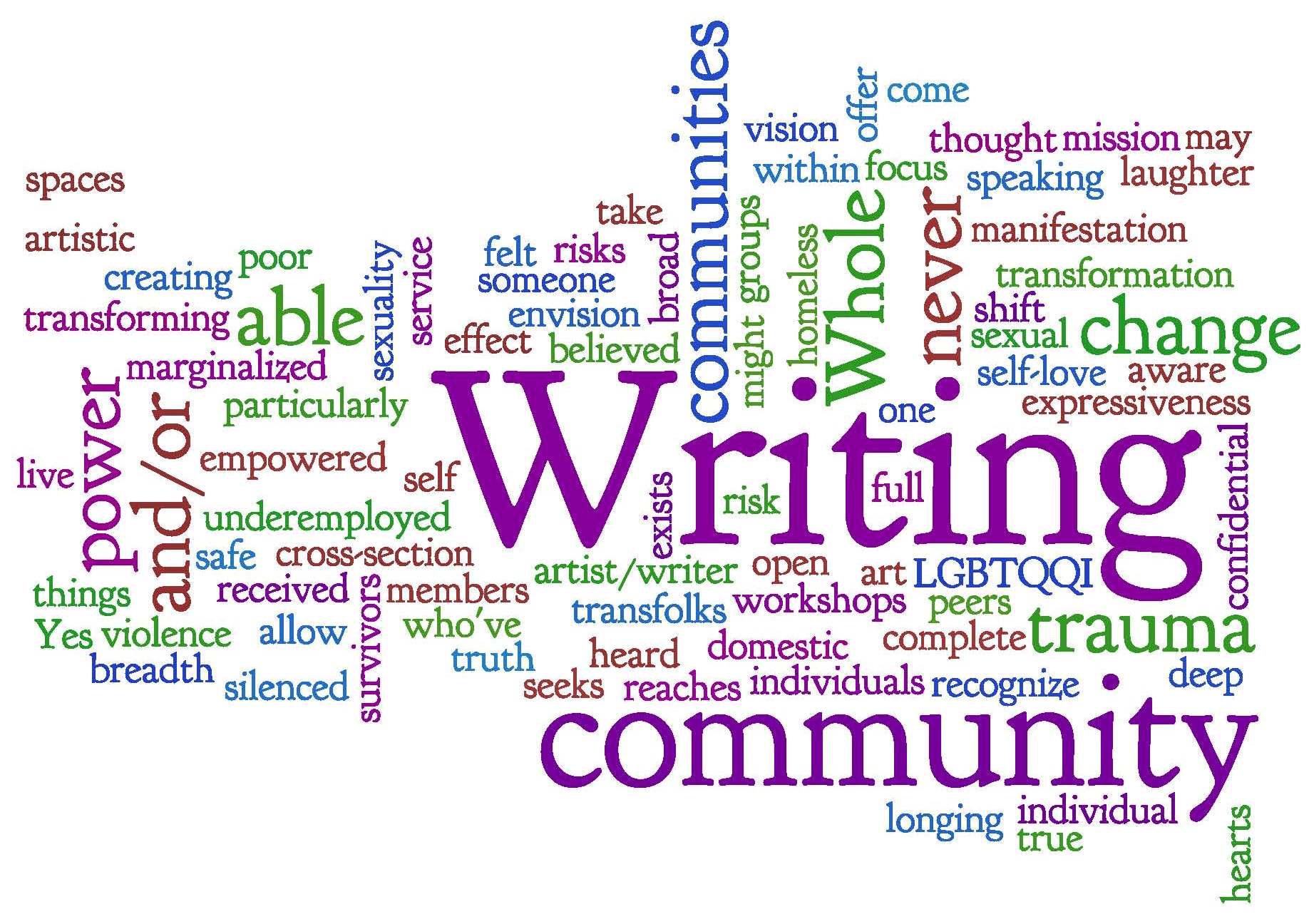 As a certified Amherst Writers and Artists workshop facilitator, I use this structure for all of my writing workshops:
As a certified Amherst Writers and Artists workshop facilitator, I use this structure for all of my writing workshops: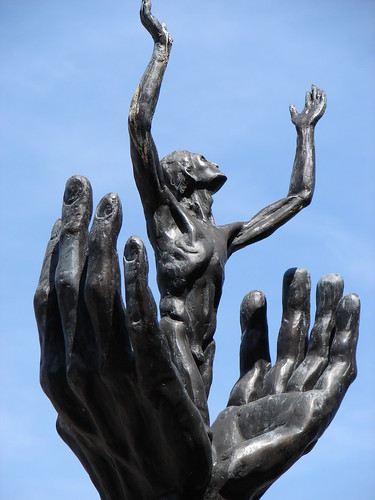 and then scratch screech wham I feel like I’m pulling on the breaks around all that freedom (although that's not the case). The piece that can be the most challenging for folks new to the AWA method is the part where we talk about all the writing as though it’s fiction. Unless instructed otherwise by the writer, we talk about the narrator and the characters in the piece (rather than saying 'you' to indicate that the writer and the one written about is necessarily the same).
and then scratch screech wham I feel like I’m pulling on the breaks around all that freedom (although that's not the case). The piece that can be the most challenging for folks new to the AWA method is the part where we talk about all the writing as though it’s fiction. Unless instructed otherwise by the writer, we talk about the narrator and the characters in the piece (rather than saying 'you' to indicate that the writer and the one written about is necessarily the same).  This is what I want to talk about: the wording matters. How we talk about something matters.
This is what I want to talk about: the wording matters. How we talk about something matters. 
 There’s a working space that gets opened up around us when one person puts her words in the room and then all of us, the writer included, gets to look at those words as a bit detached from the writer herself. We get to turn the story over, allow response to all of its angles, aspects, curves, undersides. Often, I picture the story as a silvery-malachite ball floating next to the writer: we all get to enjoy this creation for what it is, exactly as it is, expecting nothing more from it (even if we didn’t want it to end while we were listening).
There’s a working space that gets opened up around us when one person puts her words in the room and then all of us, the writer included, gets to look at those words as a bit detached from the writer herself. We get to turn the story over, allow response to all of its angles, aspects, curves, undersides. Often, I picture the story as a silvery-malachite ball floating next to the writer: we all get to enjoy this creation for what it is, exactly as it is, expecting nothing more from it (even if we didn’t want it to end while we were listening). I had such a great experience writing in response to the
I had such a great experience writing in response to the 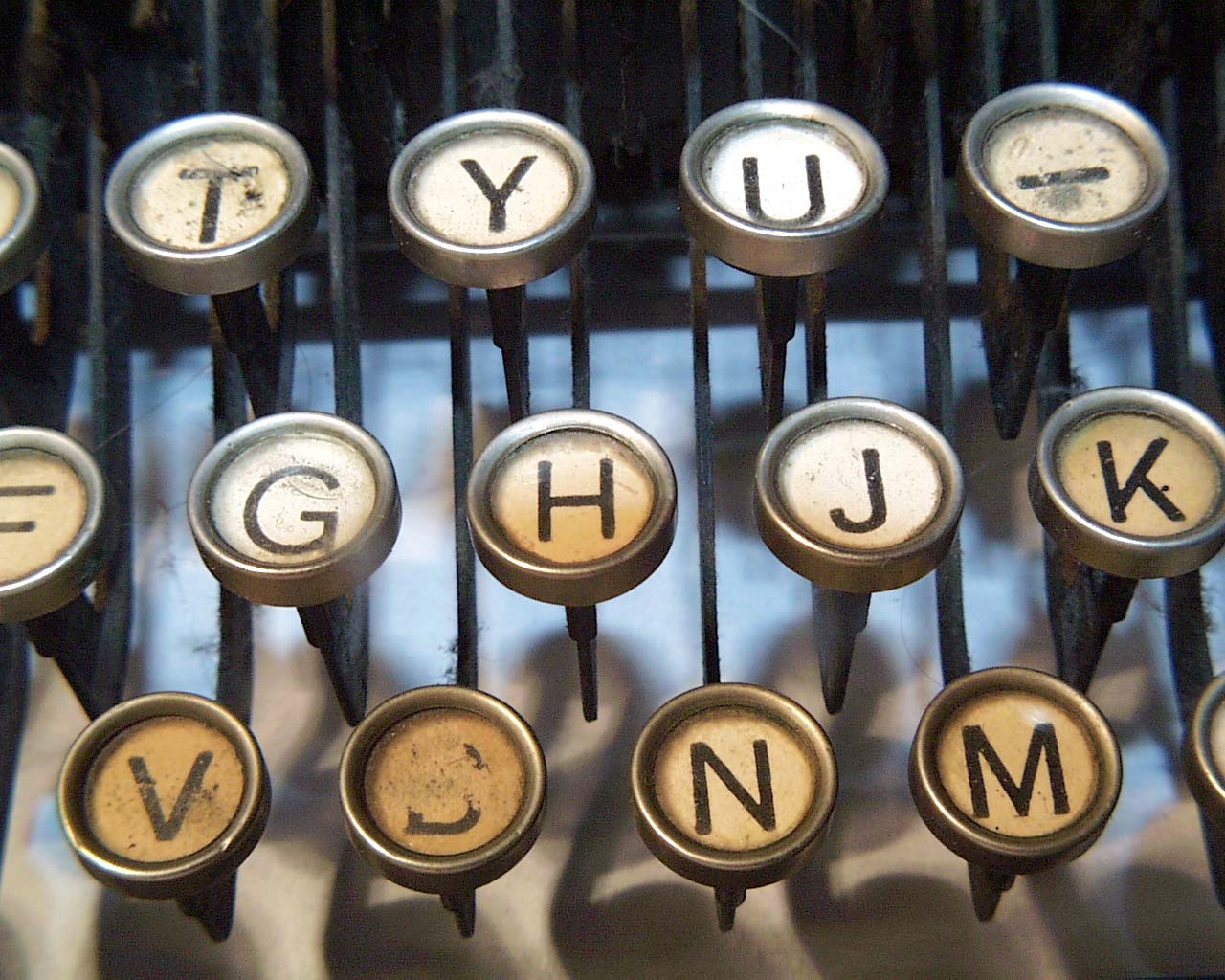 The first question on the list:
The first question on the list: While we're creating narrative and art out of what we think of as the boring (or worse) stuff of our lives, in a community of like-minded others who celebrate our art, our internal selves are rearranged, sometimes without our even realizing it.
While we're creating narrative and art out of what we think of as the boring (or worse) stuff of our lives, in a community of like-minded others who celebrate our art, our internal selves are rearranged, sometimes without our even realizing it.
